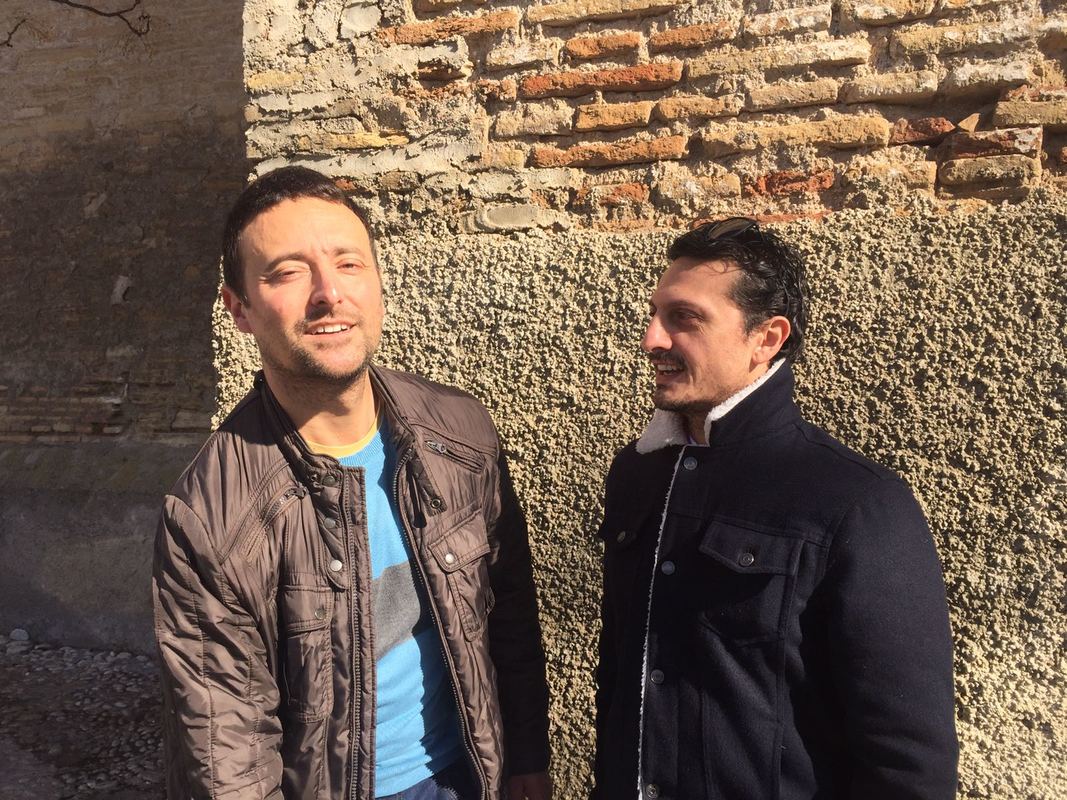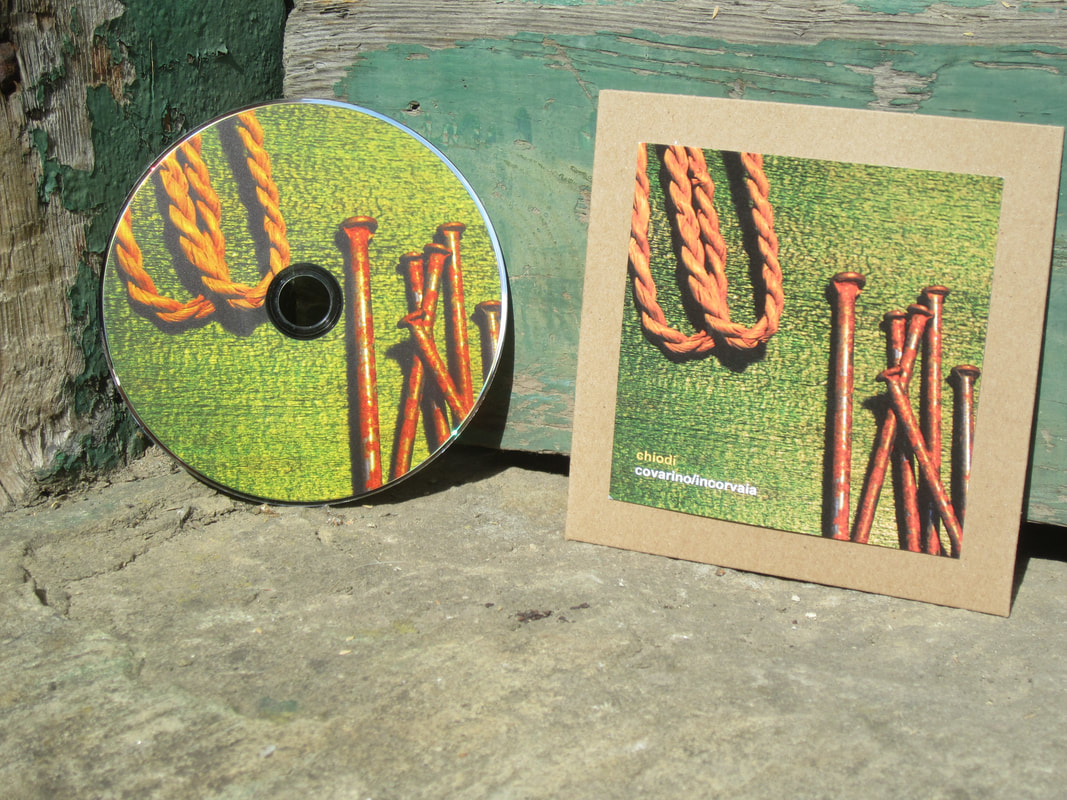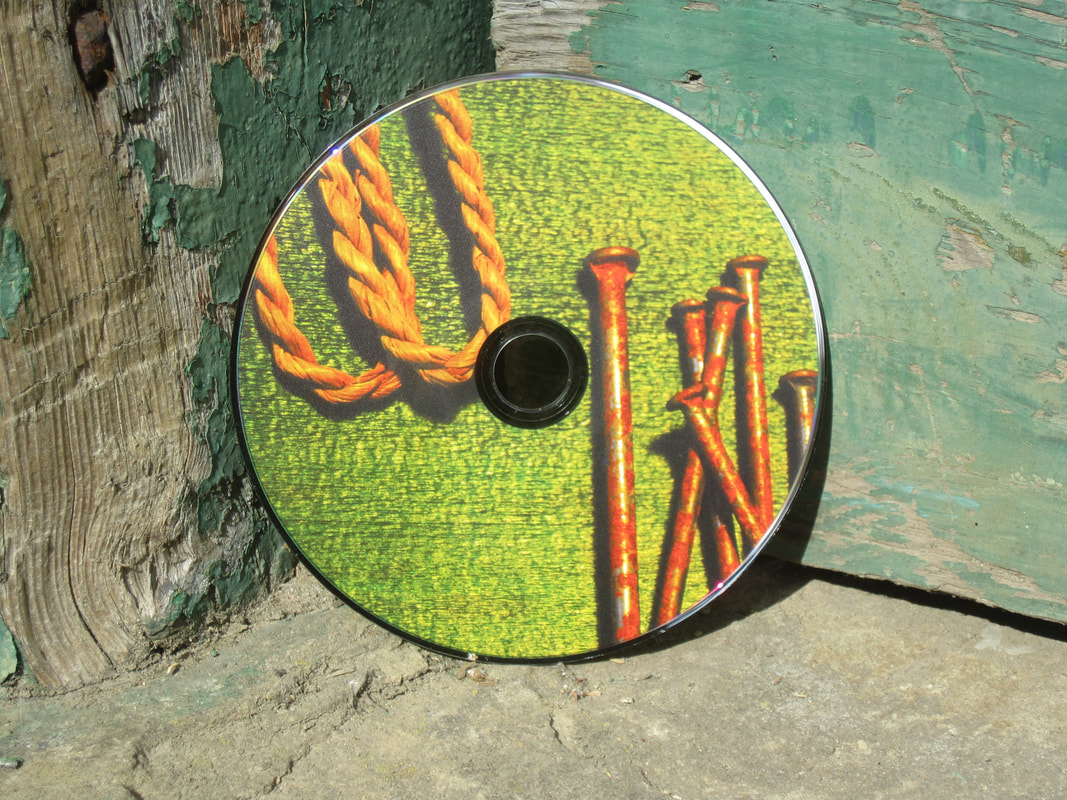Comments
Covarino/Incorvaia: “A minimal set up, occasional noises and silence.”
The Italian duo talk about playing less notes and leaving more space, and why Chiodi was improvised live without overdubs or editing.

What characterises the sound of Chiodi?
Covarino: After Perugia (Preserved Sound, 2016) and Granada (Whitelabrecs 2017), the only idea we discussed before recording was to play less notes and leave more space, and to play quietly in order to let all those unpredictable room sounds come out – the click of Alessandro’s foot pressing an effect pedal, my drum stool creaking, things like these.
Alessandro is very much into drone and ambient music, while I’m more interested in improvisation and recordings that contain found objects and tape hiss. I guess this project is a reflection of how we combine these influences in an improvised way.
How did you record the album?
Incorvaia: We recorded Chiodi in January 2018, I flew from the UK on a Thursday night and on Friday morning we were in a studio in Granada. The first two tracks on Chiodi are the actual first two tracks we played that morning. Everything was recorded live in the studio, and not edited afterwards – what you hear is what we played.
Incorvaia: The sound engineer put a couple of microphones in the room below the studio we were playing in and left the door open, looking for some extra reverb, but these microphones ended up recording all the noises on the street outside – a rooster, a dog, a car passing by. We loved it all and kept it on the final mix. All the noises you can hear were recorded live, not field recordings that were added later.
Describe the way you generally record?
Covarino: As we live in two different countries and only see each other once a year or so, improvisation feels like the most natural way to go for us. Alessandro flies to Granada, we go into a studio for two days, we start playing, the sound engineer presses “record” in the morning and “stop” a few hours later. At the end of the day we listen, decide what to take and what not, we mix everything and we go home.
Incorvaia: We like to record live and don’t add anything to the live recording – no overdubs, no editing. We keep everything including the wrong notes. We’re both proud self-taught musician and like the unpredictable and the weird.
Covarino: I feel quite strongly that our recordings should take place in one or two days, so they reflect how we were feeling and playing on that particular day – who we were on that day. Chiodi is basically a portrait of us both on January 19 and 20, 2018.
Read an interview with Covarino/Incorvaia on how they made their first album Perugia.
 |  |
